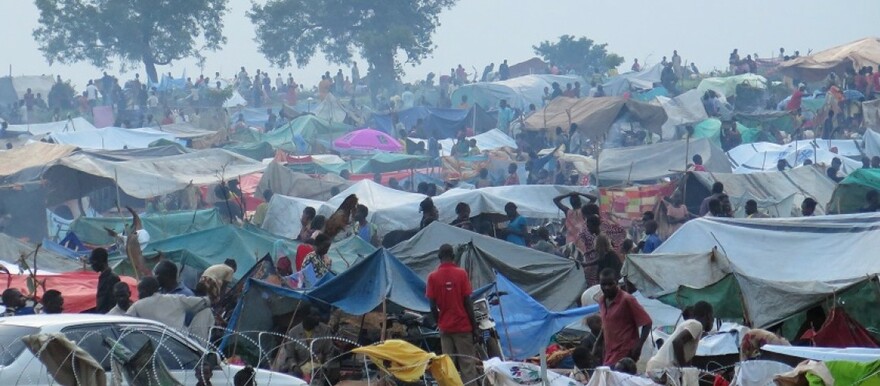A total of 10,581 Internally Displaced Persons (IDPs) who are still sheltering at the UN camp in Wau in Western Bahr el Ghazal State have called on the state government to give them land for resettlement.
They say they cannot return home; however, the majority of those who were displaced have since gone back to their homes.
In 2017, thousands of people fled their homes in Jur River and Wau counties to Wau town following heightened violence occasioned by the civil war. Others fled conflict between pastoralists and farmers in Jur River County.
At the time, over 40,000 IDPs were settled at the camp known as Naivasha; however, when UNMISS handed over the sites to the government two years ago, a large number of IDPs voluntarily returned to their homes.
The Naivasha camp is still hosting 7,000 people, while Masna Talib has 3,581 individuals.
Some of the displaced persons told Radio Tamazuj Friday that they could not go back home because they had nothing to return to.
James Bol, who lives in the Masna Talib camp, said that since he fled his home in 2017, he has been surviving by selling charcoal and wooden poles.
“I was in Buseri in Wau County, and I ran to Wau town with my family in 2017 when the conflict erupted. What is preventing me from going back is that I have nothing to go and start up a new life with. We have been getting food from the UN here,” he said. “It would be good if the government could think of giving us plots of land to resettle with our children within Wau town. We do not want to go and suffer again.”
An IDP from the Naivasha camp, Roza William, said their children have been studying in Wau town and that returning home will disrupt their education.
“I am asking the government and humanitarian organizations to think of helping us because our children have now grown and are in secondary schools,” she said. “If we return home, these children will drop out of school due to lack of schools.”
Meanwhile, Alfred Angok Uliny, the director of Alliance for Land Rights South Sudan (ALRSS), a local NGO, echoed the plea of the IDPs.
“We are urging the state government to demarcate and distribute some plots to the IDPs who came back to the centre voluntarily. They are supposed to go back to their respective locations, but because they do not feel safe, they deiced to come back and stay in the camps,” he said. “They will not get the basic needs like schools and health care back home, so we are urging the state government to allocate them plots.”




